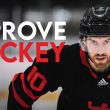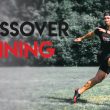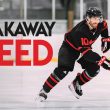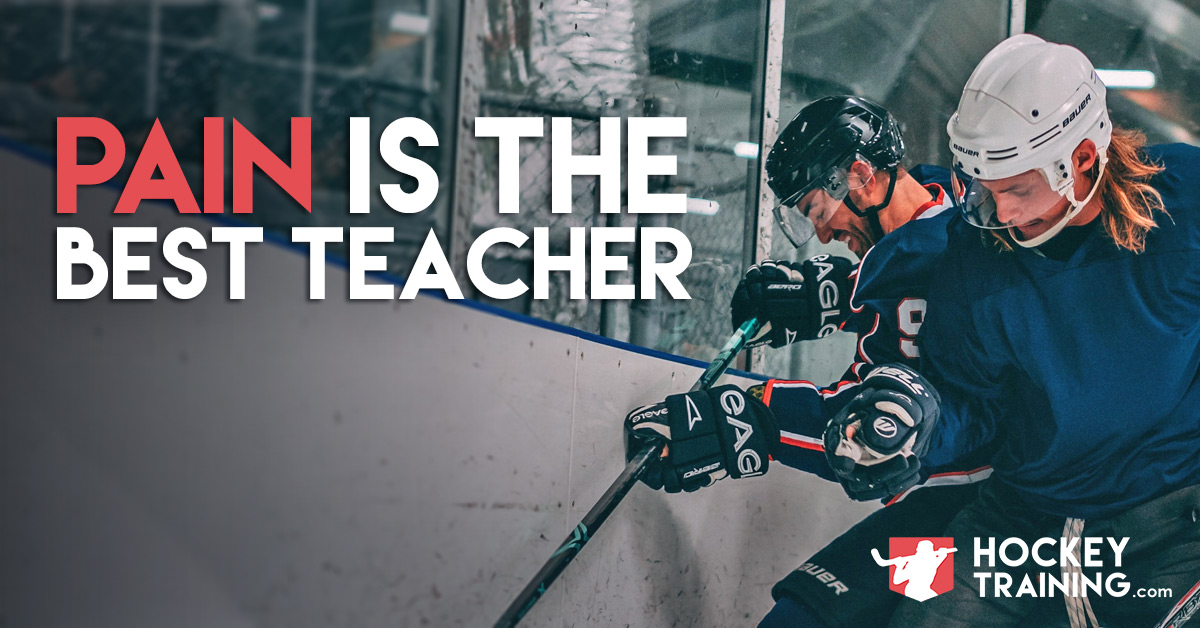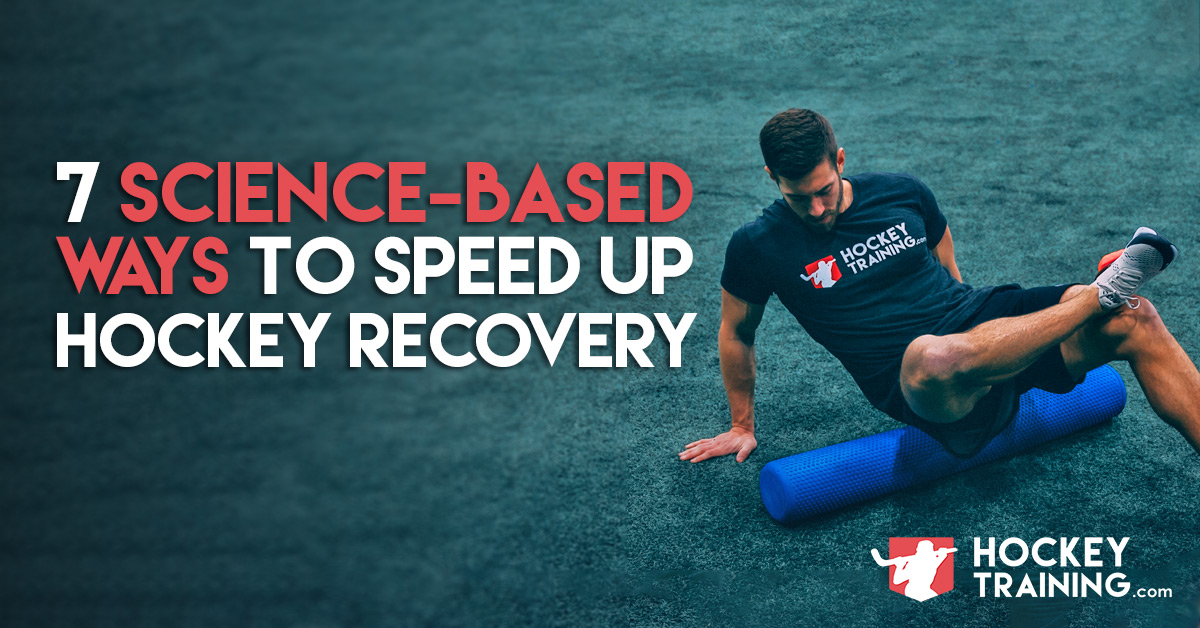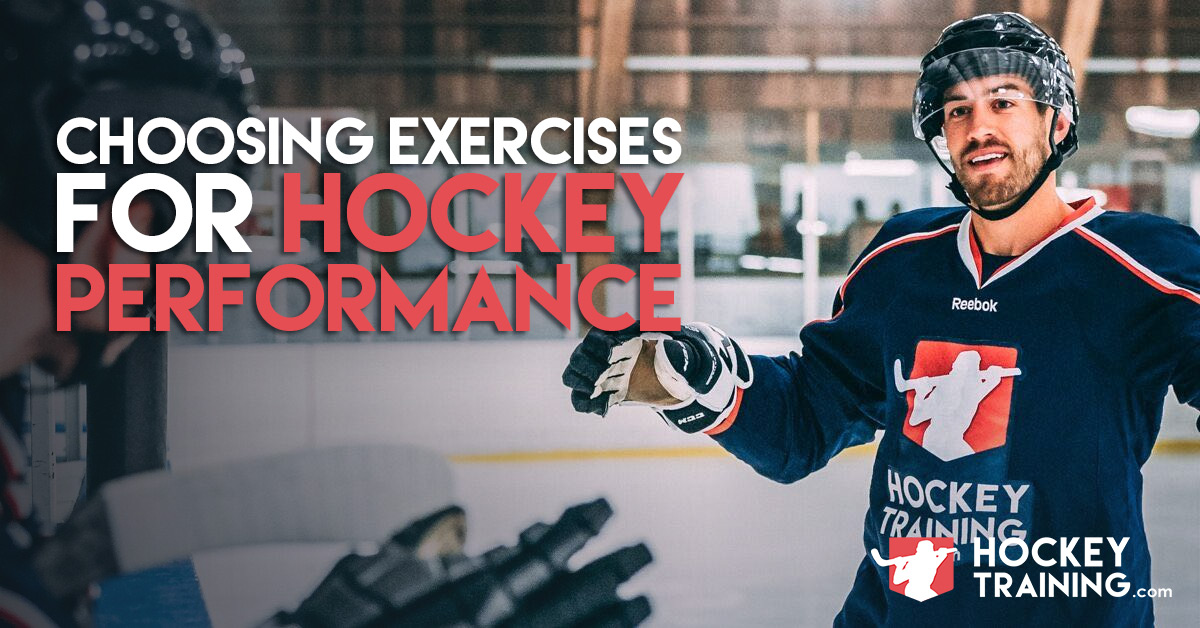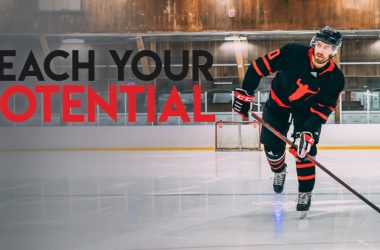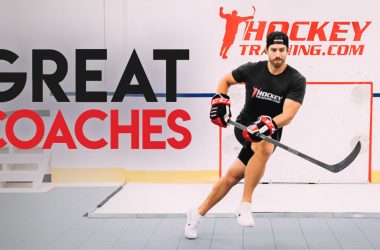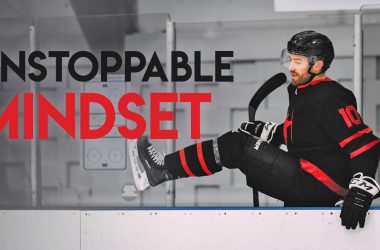Think about some of your most memorable lessons in life right now.
Whether in the gym, on the ice, as a child, or in a relationship – anything at all.
What did you learn?
More importantly, how were you forced to learn it?
I can tell you how…
Pain.
Pain is the best teacher you will ever have.
It’s something I both wish for you and not wish for you at all. It can be valuable because you learn a new lesson so deeply, but it can be damaging if you reject the lesson that’s being thrown right in your face that will protect you from future harm if you just accept and listen to it now.
I have covered so much within this Hockey Training blog, I could easily just string them all together and it would be a massive, massive book to read.
But, a large part of me writes just because I want you to become the best version of yourself – I also want you to learn from my pain so that you can learn the lesson you need to know without going through any pain yourself.
I Learned the Hard Way…
Mostly as a high school hockey player, the training that I was doing had very little carryover to what I was doing mentally or physically.
As a Canadian, it is embedded into your DNA that hockey is the best game in the world and that you need to drop these other things called “soccer” and “baseball” (what are those things anyway?).
At the time, hockey wasn’t exactly the easiest sport for me.
I was a smaller kid out on the ice, I wasn’t very tough, and I didn’t have the relative strength I needed to make up for those glaring weaknesses.
Hockey certainly has a strong way of teaching you about life and what it takes to succeed even beyond the sports world.
If you want to be an excellent hockey player, you are going to need two things:
#1: You have to be tough, mentally and physically.
#2: You have to be strong, mentally and physically.
The competitive world of hockey will throw this lesson at you repeatedly, and it’s best you need these traits in order to become the best version of yourself. They’re non-negotiable.
Getting Destroyed Was A Regular Thing
When I started playing hockey in high school, I didn’t have the type of mental edge that an excellent athlete should have — beyond this, I was really young for my grade with a birth date of October 30th.
I was pretty young and immature, whereas kids in my grade were almost a full year older than me and more mature too.
Mentally, I didn’t have the killer instinct I needed in order to care about my off-ice training or care about getting better.
I’d rather stay at home then go to practice, I was missing that hunger that every good hockey athlete should have.
This attitude in combination with my physical stature was what lead to me getting destroyed on the ice, on a pretty regular basis too.
It really sucks when you know your team is depending on you, and yet you still feel intimidated to go into the corner with “that big guy from the other team” because you know you’re not getting out of there without getting smashed.
This is bad mentally and physically, it’s a lose-lose scenario, and looking back on it — it was a pretty tough time in my life.
So, I did what any good man should do.
Pick up a barbell and go nuts.
“Hockey” Training
One day I just had enough and asked my Dad if he could pick me up a weight lifting set if he saw one on his weekly garage sale drive around.
Sure enough, he found one of those classic old-school York bench presses with the concrete, plastic covered plates.
I did my first weight lifting workout and have been in love with lifting ever since.
But, it’s not some sort of Cinderella story here — because my hockey game didn’t get any better.
All I could think about was how hard I worked in the gym and how little it paid off out on the ice.
Why am I getting stronger in the gym, but still getting tossed around out on the ice?
Why isn’t my shot harder?
Why aren’t I harder to knock off the puck?
Looking back on it, the truth of the matter was that my muscles simply weren’t trained correctly for the sport of hockey, and neither was my mind.
I was doing a pretty boy bodybuilding routine, and just assumed that it was going to have translation over to the ice.
I remember thinking that I “just needed to keep on bodybuilding and focus on developing my hockey skills”
Focusing on hockey skills was a great idea, but the bodybuilding nonsense was not. I got a lot bigger and stronger, so that was cool for looking good, but I still wasn’t performing well. The scoresheets never lie.
I had the muscle without the hustle.
Pain Is A Great Teacher
As I continue to write this story out, we come full circle.
The pain of being terribly wrong about my training came with the pain of getting destroyed out on the ice. What’s worse, those two pain’s in combination lead to a third pain of crippling mental confidence.
I made this mistake, and I learned from the pain.
That was many years ago, and I have created such a massive body of work to help any and all hockey players that I can avoid this pain by training for hockey the right way so that they can become the best hockey players they can possibly be…
And yet I still see the same mistakes being made by hockey players year after year, season after season, workout after workout.
Hockey athletes aren’t training on hockey specific programs and are completely under respecting the amount of science that goes into REAL program design.
Find The Right Program and LOVE It
Because of the lack of success I was seeing with my weight training program, I cut it out during the season and focused on cardio-only work.
That was a really stupid decision, staying strong during the season is immeasurably critical towards speed, conditioning, injury prevention, having a hard shot, being hard to knock off the puck, and overall mental confidence.
Needless to say, performance got even worse when I switched to cardio-only. Which is the second mistake I see so many hockey athletes make.
#1: They don’t train specifically for hockey.
#2: They drop their weight training during the season because they think “games and practices are enough”
If you don’t listen to me, you’ll have to listen to pain.
Once the season was over and I was done with my idiotic cardio-only phase, I jumped right back into lifting, and to be honest, even though I was back doing my old bodybuilding stuff — I was ecstatic to be back in the gym.
I couldn’t wait to get in there and start banging the weights around again.
I see so many athletes take multiple weeks or even months off of training once the in-season is over, when I see this I only see laziness and a complete lack of the hunger you need to become a better hockey player.
I also see a lack in the happiness that they are getting from their training program, there is no excitement for them.
Training should always be fun for you, even when it’s brutal.
I always trained the day after the season was over, I could never wait.
I loved it too much, and still love it that much today.
I get some of the best feelings in my entire life when i’m in the gym training as hard as I can. It’s my meditation.
Even though at the time my training wasn’t exactly helping me become a better hockey player, the experience of training itself was so internally fulfilling that I loved every part of it.
Which leads me to mistake #3…
You need to love your hockey training program.
Becoming a better hockey player is something you should always be about, not just sometimes, or when you “feel like it” — because of this, when you’re on a REAL hockey training program you should be absolutely loving the fact that you are doing something that is going to have a direct translation over to you being an unstoppable force out on the ice.
Final Thoughts
The bodybuilding routines I did from various websites and magazines were not pushing my physical or mental barriers, and certainly weren’t making me a better hockey player.
From this point and into my adulthood, I have never stopped obsessing (and I do mean obsessing in every sense of the definition) about creating the best possible hockey training programs on the planet.
One’s back with real science that deliver real results in a hockey specific manner.
I’m constantly and endlessly scouring the data to identify every last training, nutrition, supplementation, mindset, and lifestyle optimization tactic that I can so that hockey players can learn from me and my story.
My entire life is dedicated to hockey athletes, and the results of my hockey specific programs that hockey athletes are getting and reporting back to me on a weekly basis demonstrate that in a very real way.
Although my bodybuilding workouts were challenging in their own unique way, the methods I was utilizing didn’t give me the speed, agility, conditioning, functional strength, and explosive power that I needed to dominate on the ice.
Get on a hockey specific program today.
If you don’t… when you see him, tell pain I said hi.

